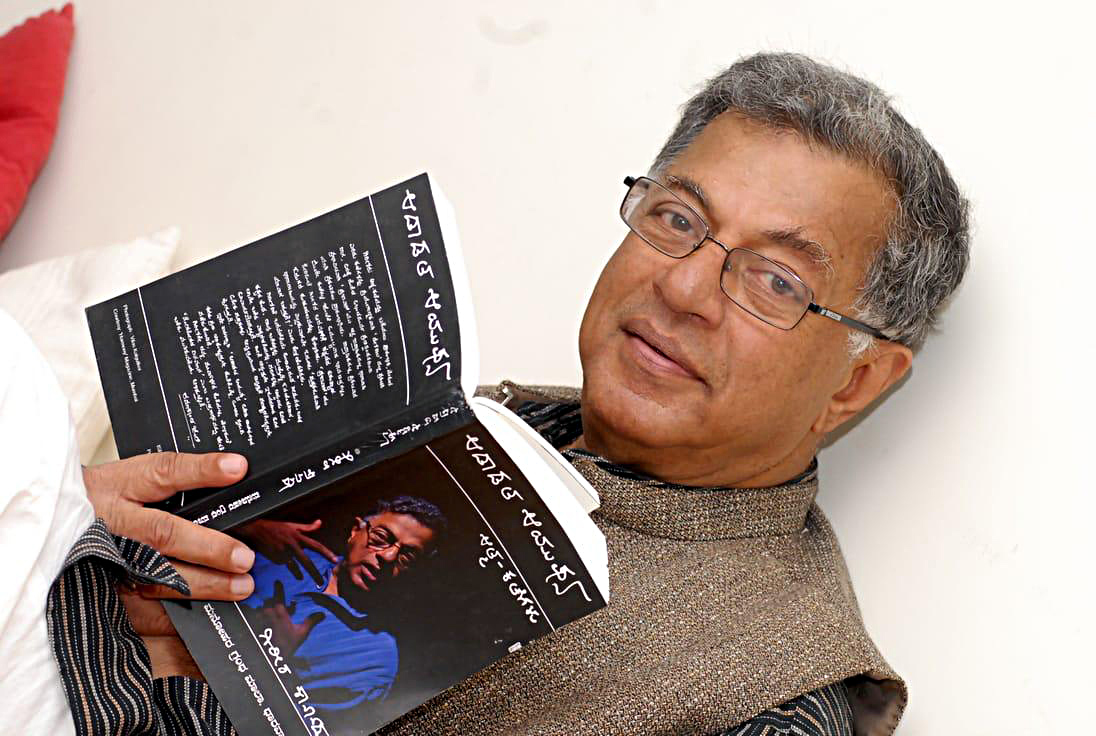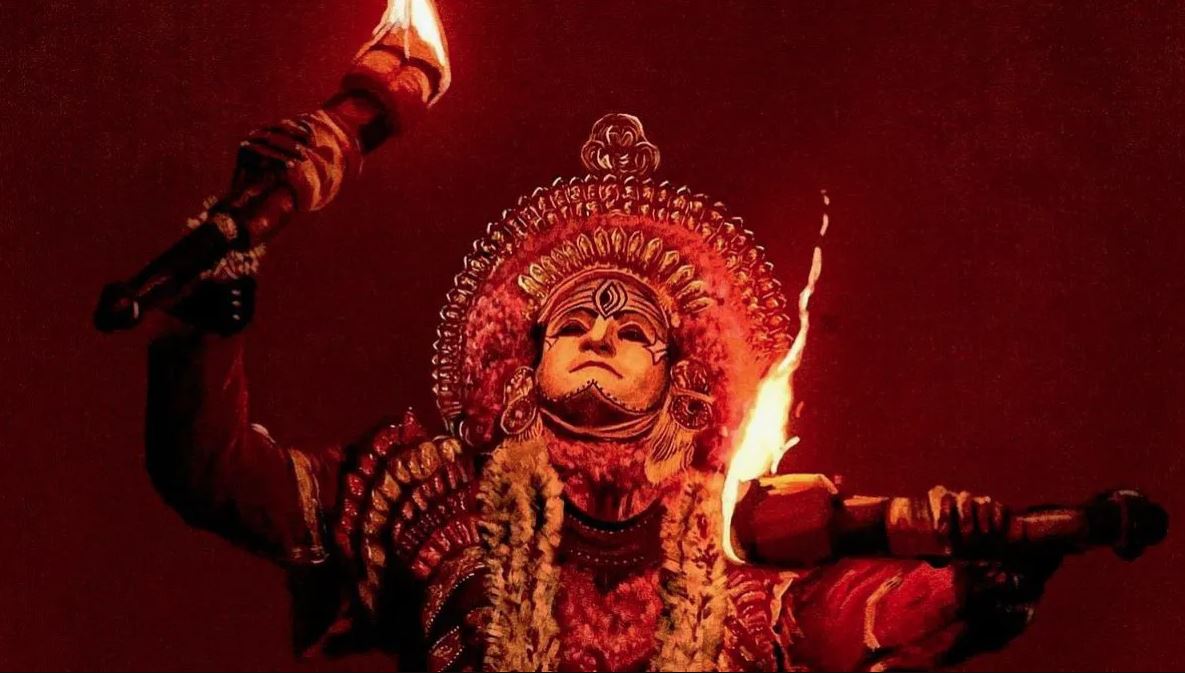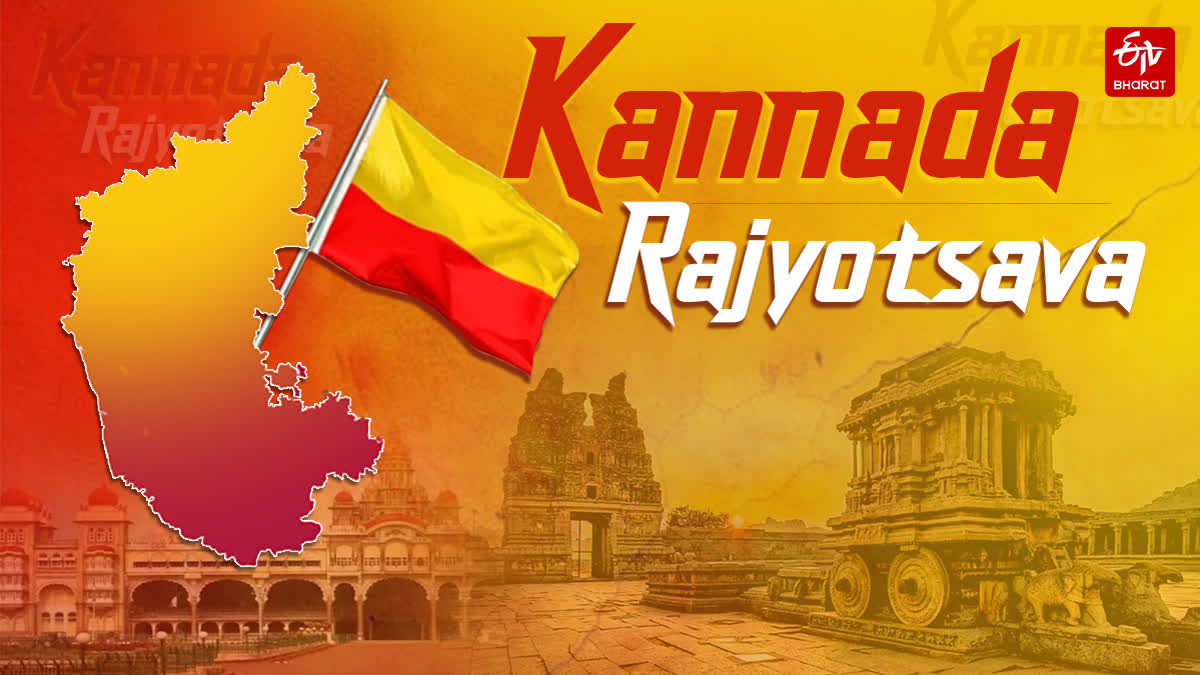Today is Kannada Rajyotsava, which has marked Karnataka’s official creation since November 1st, 1956. This day (also known as Karnataka Day) is far more than a boundary or a date in history. It is a declaration of identity and pride of the people of Karnataka.
The Immortality Of Kannada
To speak of Kannada is to speak of a language that has been whispered through centuries, sung in temples, and carved in stone. One of India’s oldest tongues, Kannada reaches back nearly 2,000 years, with inscriptions that tell of empires and gods, of poets and lovers. It was under the flickering lamps of courts and temples that poets like Pampa, Ranna, and Janna gave Kannada its earliest masterpieces. They wrote epic poems that lifted characters from their myths and placed them before us as human beings. Take Pampa’s Vikramarjuna Vijaya, for instance, where Arjuna of the Mahabharata emerges not as a distant warrior but as a man of conflicts, a character too real to be myth. Then there was Ranna, whose Sahasa Bhima Vijaya gives us a version of Bhima that resonates with a humanity we seldom ascribe to epic heroes.
This language holds not only poetry but protest. Basavanna and his compatriots Allama Prabhu, Akka Mahadevi, launched the Vachana movement in the 12th century. The Vachanas broke away from formal poetry, trading rhyme for rhythm, and courtly polish for the language of the common man. Basavanna’s lines echo with the urgency of reform, of equality. Akka Mahadevi’s verses had the voice of a woman who rejected convention for her own mystical path. These Vachanas have not dimmed over time.
A Revival Of Kannada Arts
Leap forward a few centuries, and Kannada’s journey did not halt at ancient odes and reformist manifestos. In the 20th century, it found a renaissance under writers like Kuvempu, whose epic poetry infused Kannada with a renewed sense of identity. His lines in Jaya Bharata Jananiya Tanujate are anthemic, celebrating not merely the beauty of Karnataka’s landscapes but the indefatigable spirit of its people. Following him came U.R. Ananthamurthy, who with novels like Samskara cracked open the hypocrisies of orthodoxy, and Girish Karnad, who brought to life Kannada’s myths and folklore on stage. Through these voices, Kannada literature has moved boldly into the present.

Folk Culture
Karnataka’s folk culture is not static. It lives, breathes, and transforms with each generation, adapting to the stories and voices that define contemporary Karnataka. The state's cultural legacy extends far beyond language and into the realm of movement and spirit. Take Yakshagana, a classical form of dance-drama that is both an art and an invocation. Costumed actors, adorned in bright makeup and elaborate headdresses, bring gods, demons, and mortals to life. It is drama as dance, dance as myth, and myth as experience. In Yakshagana, the boundary between performer and deity is blurred.
Then, there is Bhoota Kola sealed in pop culture thanks to the cult film Kantara. Bhoota Kola is an mystical dance ritual deeply rooted in the spirit-world. The tradition is particularly revered in Karnataka’s Tulu-speaking regions. The performers embody the spirits (or bhootas) and channel their power. As night turns to dawn, men in intricate makeup and ancestral costumes dance in fervour, delivering blessings, warnings, and prophecies.

Modern Voices And Global Reach
Today, the story of Kannada does not end at Karnataka’s borders. It has travelled far, speaking not only through its native words but through its translated works, its diaspora, and the voices of young poets, playwrights, and novelists who continue to bring new life to Kannada. Beyond literature, Kannada culture has made significant contributions to Indian cinema and music. Pioneers like Puttanna Kanagal and Rajkumar brought Kannada cinema to national prominence. Kannada film music evolved alongside cinema, with composers like Hamsalekha and Ilaiyaraaja creating soundtracks that have resonated across generations.
On this Kannada Rajyotsava, as Karnataka lifts its banner high, the people reaffirm a bond that time itself cannot sever. Kannada is not just a language but a way of being. In the reverent chaos of Bhoota Kola, the poised elegance of Yakshagana, the fiery spirit of the Vachanas, and the contemplative depth of Samskara, today we honour Karnataka as a place forever suspended between heaven and earth.



